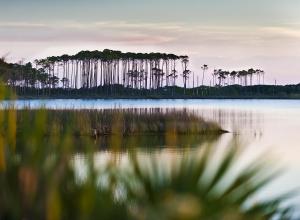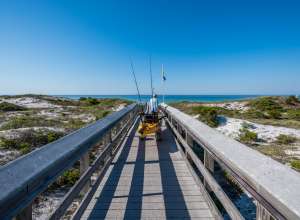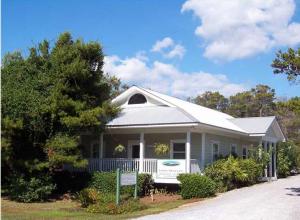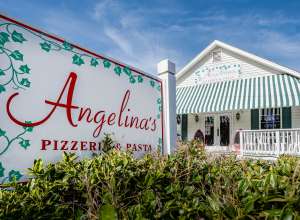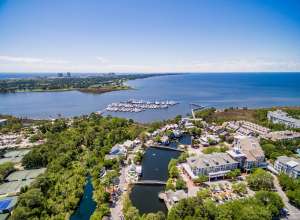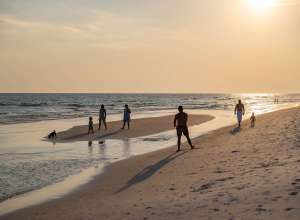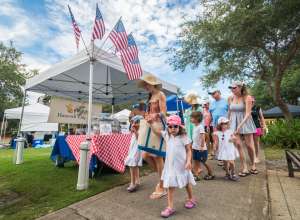Story
Gulf World Marine Institute Tends to Turtles
August 10, 2017 by Kerri Parker

Meeting a sea turtle up close is a powerful experience.
They're beautiful and graceful in the water, and they're so darn cute, with big eyes and a permanent smile. They're curious about people and seem to want to connect, waving their large flippers when a person comes close. When you get the rare chance to be face to face, you feel an emotional bond right away.
On a recent visit to Gulf World in Panama City Beach, the SoWal team got to meet some very special flippered friends. We learned that even the largest turtles are vulnerable to dangers in the water, especially from our own pollution and garbage. Thankfully we have an organization in our community that is an industry leader in research and rehabilitation of marine life. The Gulf World Marine Institute (GWMI) is a non-profit organization having roots in rescue and rehabilitation since 1970. The Institute and volunteers have rehabilitated thousands of sea turtles and hundreds of dolphins.

Sam Tuno & Lauren Albrittain
"When our sea turtles are back in good health, we hit the beach and send them back home," says Lauren Albrittain, GWMI Stranding Coordinator. "After all the hard work, it's the best feeling in the world to see them paddle out into the Gulf!"
The GWMI facility is located next to their number one contributing sponsor, Gulf World in Panama City Beach. On our visit we got a glimpse of the massive amount of work happening 24/7.
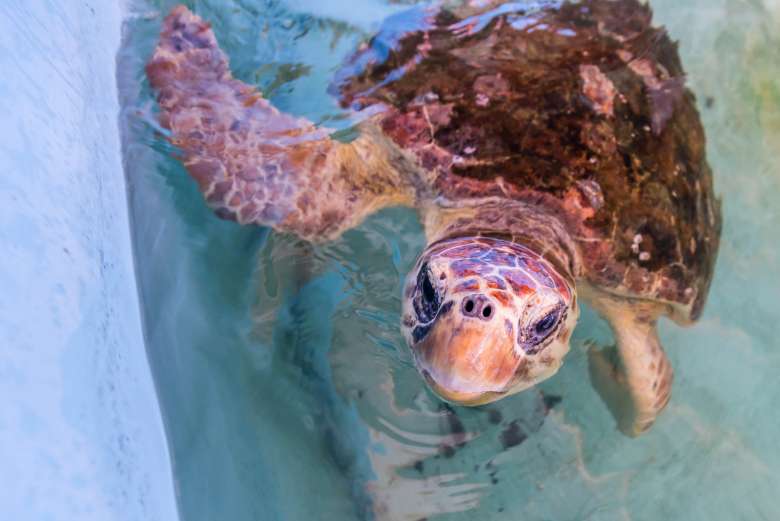
“We are in the process of raising funds to create a building dedicated solely to rescue and rehabilitation,” says Lauren. “We have an army of volunteers, including Gulf World staff, who tend to our mission of rescue and rehab every opportunity they get.”
Entering the facility we step between massive tanks housing different species of sea turtles undergoing rehabilitation. From rare green sea turtles, and Kemp's ridley, to juvenile loggerheads, the facility has several species to care for with the ultimate goal of returning the sea turtles to their natural habitat.

In another section of the Institute we've visited before houses dolphins. GWMI is the only dolphin rescue and rehabilitation facility in the Northwest Florida Gulf region.
“We typically don’t have the opportunity to save many dolphins. By the time they come to us, they are either deceased, or in such bad shape we can’t rehabilitate them,” says Lauren.
It’s harder to know when a dolphin is sick, but with sea turtles the symptoms are more obvious.

“It’s normal to have barnacles on their shell, but once they cluster the shell, they start slowing the turtle down even more. A slow-moving turtle is an invitation for barnacles. It is not a good sign of health,” says Lauren.
On a case by case basis, each turtle in rehabilitation will have blood tests and antibiotic treatment, followed by a 30-day observation. Once the Gulf World veterinarian deems the turtle healthy, and ready to return to its natural habitat – the release process happens as quickly as possible.
You can check the SoWal Forum, and follow GWMI on Facebook for updates on local releases. With lots of boats on the water on weekends, releases are usually between Monday and Thursday, allowing released turtles the best opportunity to return safely.
The team of volunteers and staff members at GWMI often work alongside members of the United States Coast Guard and Florida Wildlife Commission. Most missions involve removing entanglements with kite string, fishing line and other careless litter that can prove deadly.

Rescues are not limited to dolphin and sea turtles. Other missions include manatees that are ‘confused’ with our unusual warmer waters at a time when waters are typically cooler. They get trapped in our bay areas – when they should be heading south.
“We work together to safely return them to their southern habitat,” says Albrittain.
To improve and expand operations, GWMI is seeking more than $1 million to build a high-quality rescue and rehabilitation facility.
“It’s not the staff that makes our mission costly, it is the equipment and medicine needed to get each rescued turtle or dolphin back where they belong. Our number one goal is to release every rescue back to its natural habitat,” says Albrittain.
There are programs in place to offset the costs of treatments; programs like ADOPT A TURTLE. Every adoption will help aid and support the treatment of patients at the Institute.
You can also contribute by DONATING directly on their WEBSITE.
The Gulf World Marine Institute is not open for tours to the public. If you are interested in volunteering, please download this form. You must be 18 or older to volunteer.

